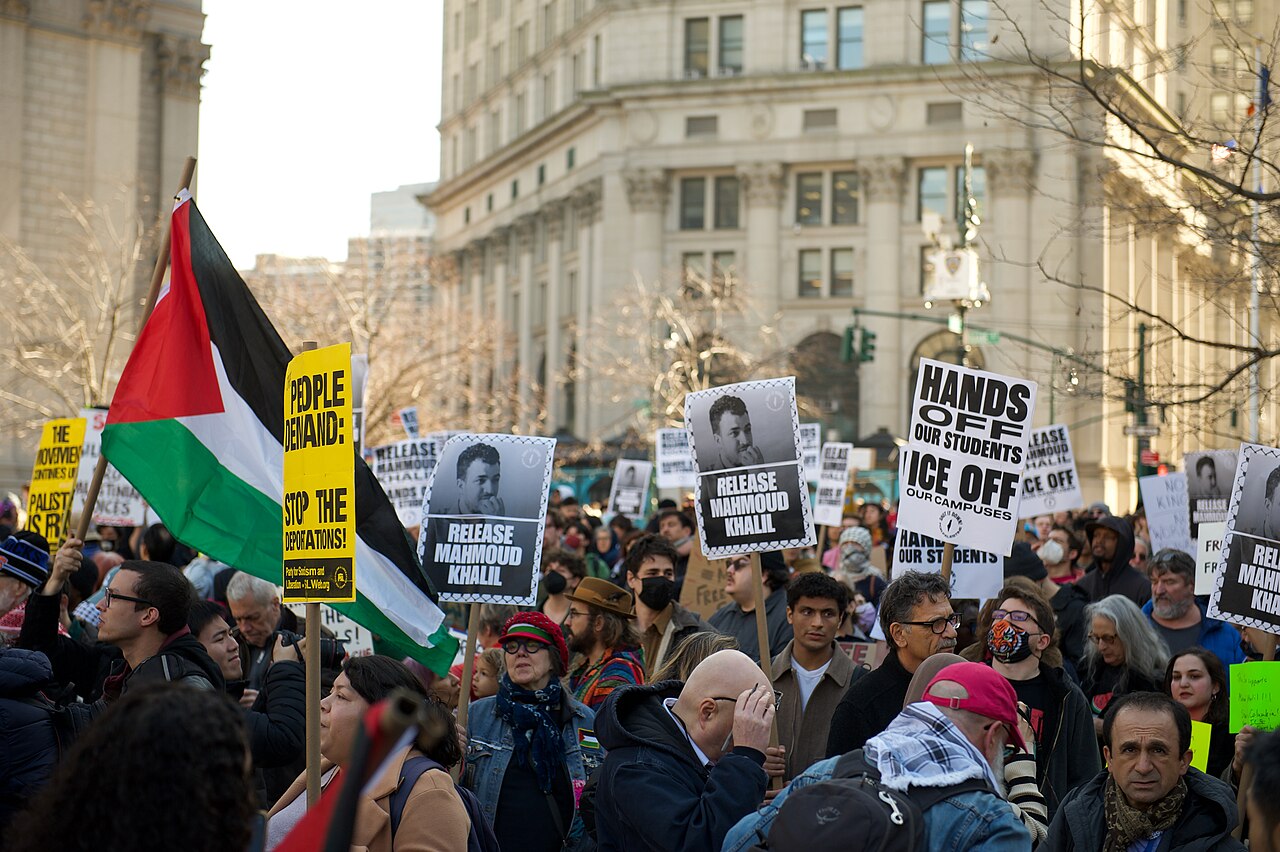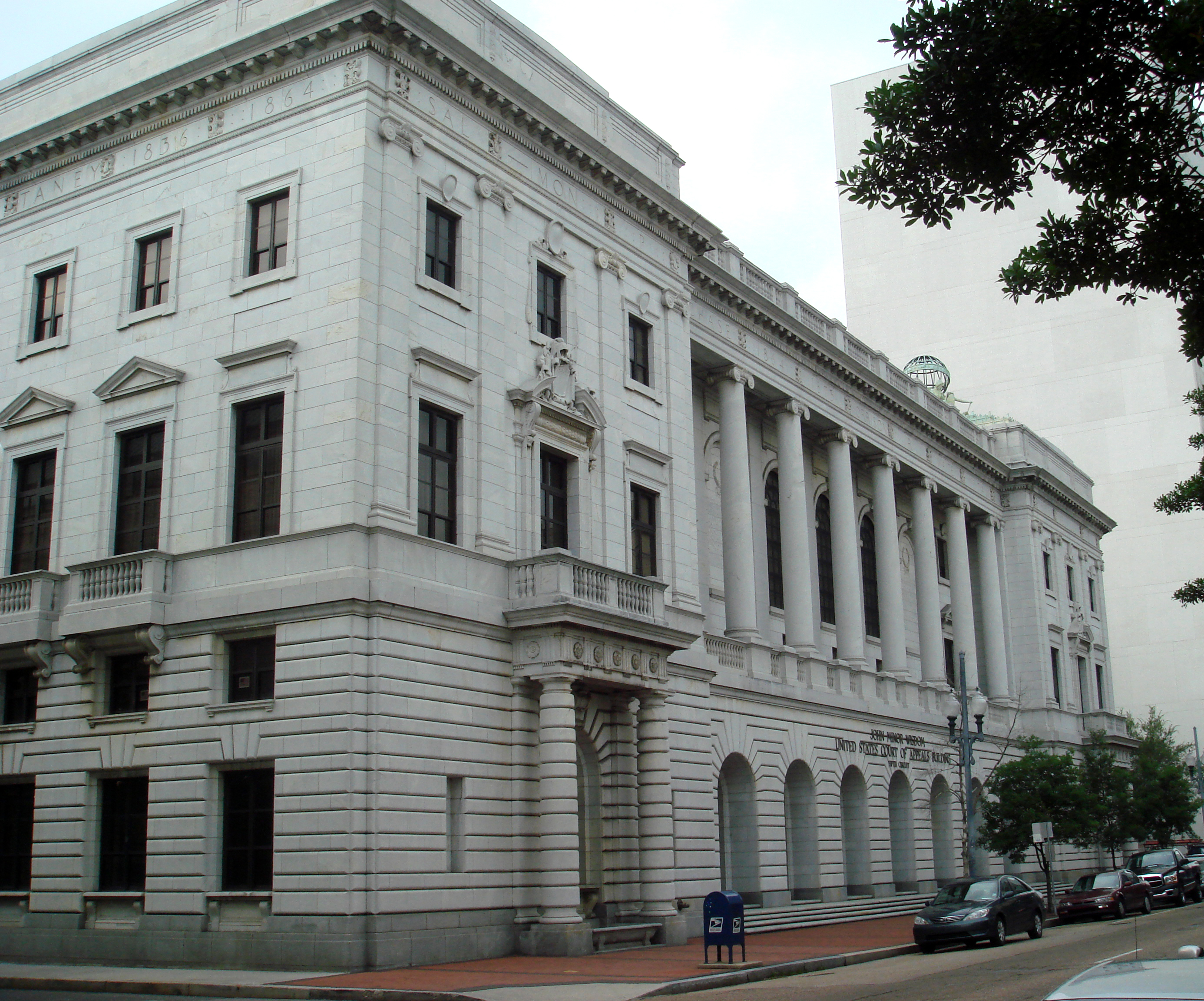Ideological Deportations Lawsuit Heads to Trial

In late April, a district court judge in Massachusetts largely declined to dismiss the lawsuit challenging the Trump administration’s practice of detaining and deporting noncitizen students and educators who participate in pro-Palestinian advocacy. The American Association of University Professors (AAUP) and Middle East Studies Association (MESA) brought the case against the Trump administration a month earlier, seeking a preliminary injunction to halt what it describes as an “ideological-deportation policy” targeting political speech on college campuses. Senior District Judge William Young’s ruling allows the case to proceed over mostly jurisdictional objections from the government. A trial on the merits is scheduled for July 7.
Background
AAUP v. Rubio concerns the Trump administration’s recent efforts to target and remove visa holders who have engaged in pro-Palestinian or anti-Israel political advocacy. The plaintiffs claim the administration has adopted a broad policy of “arresting, detaining, and deporting” noncitizens for engaging in otherwise First Amendment protected activities. At bottom, AAUP charges the administration is seeking to “chill” noncitizens from speaking. The complaint points to presidential guidance, the recent targeting of campus activists, and public statements from senior officials as evidence of a deliberate practice.
In January, President Trump issued two executive orders—“Protecting the United States from Foreign Terrorists and Other National Security and Public Safety Threats” and “Additional Measures to Combat Anti-Semitism”—that directed a broad range of executive measures to scrutinize the activities and conduct of foreign nationals, including students. These orders were intended to execute the president’s promise to deport “Hamas sympathizers” and revoke the student visas of anyone similarly aligned.
Both orders reference the security and/or foreign policy “grounds for inadmissibility” of the Immigration and Nationality Act (INA). Under the security grounds for inadmissibility, an alien who engages in “terrorist activity” or is a member of a group that endorses such activity may be removed. Under the foreign policy grounds for inadmissibility, an alien may be removed if the secretary of state has a “reasonable ground to believe” their entry “would have potentially serious adverse foreign policy consequences for the United States.” Framing the provisions within the executive orders likely signals how executive branch officials should exercise their discretion under the INA to deem particular individuals as inadmissible for entry.
During the spring, the federal government targeted certain international students and educators for removal. The group included Mahmoud Khalil, who was a leader of pro-Palestinian protests at Columbia University against Israel’s war in Gaza, and several others who had undertaken pro-Palestinian advocacy. They now faced arrest by immigration authorities.
Senior administration officials played up the connection between advocacy and visa revocations. In mid-March, Secretary of State Marco Rubio said, “[W]e don’t need these people in our country,” when discussing Khalil’s arrest with CBS News. Around the same time, Deputy Secretary of Homeland Security Troy Edgar described Khalil as someone who was “invited” to the United States and then “put himself in the middle” of “pro-Palestinian activity.”
Initial Arguments
AAUP’s complaint and motion for a preliminary injunction, filed in close succession, emphasized how the government’s actions violated the First Amendment, the Fifth Amendment, and the Administrative Procedure Act (APA). The government responded by challenging AAUP’s standing and suggesting the federal district court lacked subject matter jurisdiction over the case. The government also disputed the existence of any policy, which it said was of the plaintiffs’ own “creation.”
AAUP brought two theories of a First Amendment violation. They first asserted that the policy of arresting, detaining, and deporting individuals for their pro-Palestinian advocacy amounted to impermissible viewpoint-based discrimination. They also argued that the threats of continued revocations and removals from senior officials, independently, violated the First Amendment as “unconstitutional coercion and unconstitutional retaliation.”
The Fifth Amendment and APA claims flowed from these broader arguments. AAUP asserted the policy violated the Fifth Amendment for vagueness because it failed “to give fair warning of which viewpoints the defendant agencies consider to be unacceptably pro-Palestinian” and, under the APA, was arbitrary and capricious and contrary to constitutional right.
Even as it hotly disputed the merits, the government concentrated its opposition on jurisdictional arguments.
The government argued Section 1252(f) of the INA precluded judicial review because Section 1252(f) strips the jurisdiction of lower courts to enjoin or restrain the operative parts of the INA, including the apprehension and removal of aliens. Since the plaintiff’s case essentially sought “an injunction covering an entire class of persons (noncitizen students and faculty)”—the theory went—it violated Section 1252(f) and the core holding of Garland v. Aleman Gonzalez.
Section 1252(g) worked as another insurmountable obstacle, the government argued, because this provision removes jurisdiction over cases brought “by or on behalf of any alien arising from the decision or action by the Attorney General to commence proceedings, adjudicate cases, or execute removal orders.” The implication should mean that third parties, like the academic professionals represented by AAUP, could not bring this case from an associational standpoint.
The government also argued that the plaintiffs lacked standing because their allegations were speculative and not redressable by the court. Citing United States v. Texas, the government claimed that the case amounted to an improper challenge to the executive’s “exercise of enforcement discretion over whether to arrest or prosecute” other people.
The Hearing
Judge Young convened the parties for a hearing on April 23. He seemed somewhat skeptical of the plaintiffs’ case, noting his “doubts” about the “propriety” of his providing broad injunctive relief. When asked to consider the public statements of senior officials from the news, he reminded the plaintiffs’ attorneys that his “court deals with evidence.” Turning to the government, Young shared that he was “favorably impressed” with their motion.
It became clear early into the hearing that Young would not rule on a preliminary injunction from the bench. He completely closed the door on this possibility about halfway through the proceeding when he invoked the Federal Rules of Civil Procedure, Rule 65a, to hold a trial on the merits in the coming weeks. This method, Young said, was appropriate because “trials reach out for justice in the best way that humankind knows.”
The twists and turns continued. Young offered to treat the government’s opposition as a motion to dismiss. The Justice Department lawyer was ready and willing to argue it on the spot. So, with agreement from the attorneys for AAUP, Young called a brief recess and then reconvened the parties for a hearing on the motion to dismiss.
The sides largely stuck to the points raised in their briefs.
The government described the fatal “defects” in the plaintiffs’ case, including the jurisdictional weaknesses presupposed by the INA and redressability issues that precluded Article III standing. Counsel also claimed that the plaintiffs had not met the burden for bringing a First Amendment-based facial challenge to a government policy, which required showing that the policy had no legitimate sweep. Here, the government stipulated, the “lawful core” was the administration’s effort to prevent antisemitism.
The plaintiffs responded that the INA was not a jurisdictional bar. Section 1252(f) did not apply because plaintiffs were bringing a listener’s rights case on behalf of U.S. citizens, and Section 1252(g)’s “narrow remit” did not cover policy choices that might have downstream effects. As far as standing, plaintiffs disputed that Texas controlled the redressability issue because AAUP’s case did not involve nonenforcement of the law. And plaintiffs themselves had organizational standing because their associations were expending resources and unable to recruit members in light of the government’s actions.
Judge Young appeared satisfied with this ventilation of the issues. He noted it had “been a pleasure” and took the matter under advisement.
Motion to Dismiss Ruling
About a week later, Judge Young handed down a ruling that largely denied the government’s motion to dismiss. The court did not accept any of the threshold jurisdictional arguments in which the government had invested its energy. On the merits, Young dismissed the plaintiffs’ Fifth Amendment-related claim, but the First Amendment and APA claims survived.
Judge Young methodically disposed of the INA’s jurisdictional claims. He acknowledged that Section 1252(f) may strip lower courts of their ability to issue injunctions. But he ultimately looked to Biden v. Texas for authority that this bar did not apply to other remedies that the court could enter in the case, such as a stay under the APA or declaratory relief. Finding these remedies within his grasp also allowed Young to dismiss the government’s redressability argument. As for Section 1252(g), Young agreed with the plaintiffs that they were not bringing a case on “by or behalf of any alien” and, as a result, he was not stripped of jurisdiction.
The standing arguments broke in favor of the plaintiffs. Judge Young found that the plaintiff associations could primarily assert standing on behalf of their chilled noncitizen members:
The Plaintiffs’ “right to hear” argument ... while non-frivolous, asks this Court to take an apparently unprecedented creative leap: to rule that one may sue for being deprived of the right to hear from another, due to an objective chill on another’s speech. Without ruling that such a theory, or a similar theory based on freedom of association, could not properly be advanced, this Court instead rests its ruling that the AAUP and MESA have associational standing on the Plaintiffs’ own noncitizen members’ objectively chilled speech.
The court found that MESA had also organizational standing, based on its injuries, but declined to rule on whether AAUP had pleaded particularized injuries to meet the same threshold.
On the merits, Judge Young agreed that the plaintiffs had plausibly alleged violations of the First Amendment and APA. He dismissed the plaintiffs’ Fifth Amendment void-for-vagueness claim because “Due Process-based vagueness challenges have not extended beyond the statutory sphere or, at most, to written rules and regulations[.]”
Regarding the First Amendment, Judge Young noted plaintiffs had shown that noncitizens were plausibly being targeted “specifically for exercising their right to political speech.” This was enough for the case to proceed, given case law indicating noncitizens have “at least some First Amendment rights.” Young was receptive to AAUP’s allegations of an unwritten policy because “a speech code that is unwritten or vague but enforced with harsh penalties would seem more likely to chill broad swaths of speech than one that clearly defines what is forbidden.”
This logic extended into the APA arguments. An action did not need to be in writing to be judicially reviewable under the APA, and Judge Young found that AAUP had plausibly alleged the administration’s efforts represented a final agency action. The statements of senior officials had plausibly suggested they were following a policy of deporting pro-Palestinian activists.
***
Judge Young scheduled a trial on the merits for early July. Plaintiffs will face a court eager for concrete evidence of the administration’s intentional revocations. As Judge Young said in April, he’s “looking for proof.”





